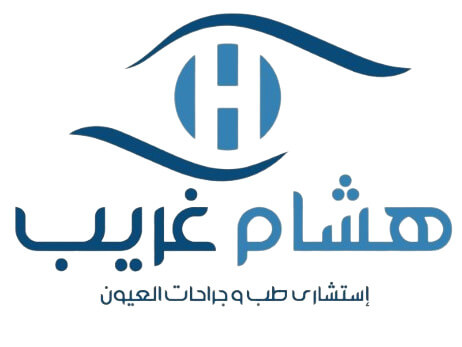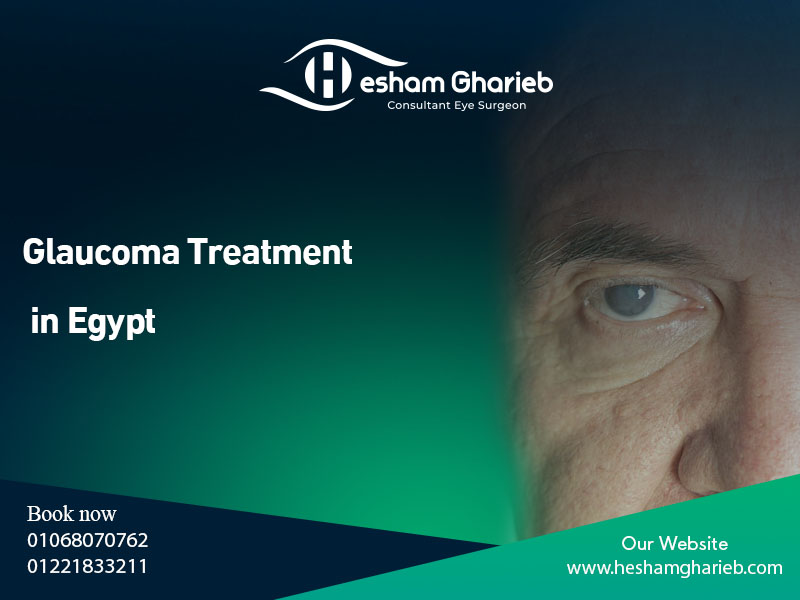Have you ever wondered why regular eye checkups are so important, especially as you age? One of the most silent and dangerous threats to your eyesight is glaucoma—a condition that often develops without symptoms but can lead to permanent vision loss if not treated early. In Egypt, more people are being diagnosed with glaucoma each year, and the good news is that with early detection and the right treatment plan, vision loss can often be prevented.
If you’re searching for glaucoma treatment in Egypt or want to learn more about eye pressure treatment, this article will walk you through everything you need to know—from symptoms and diagnosis to drops, laser procedures, and implant surgeries. Whether you’re in Cairo, Giza, or anywhere in between, this guide is for you.
 What Is Glaucoma and How Dangerous Is It?
What Is Glaucoma and How Dangerous Is It?
Glaucoma is a group of eye diseases that damage the optic nerve, usually due to increased intraocular pressure (IOP). The optic nerve is responsible for sending visual information from your eye to your brain, and when it’s damaged, vision gradually declines.
What makes glaucoma especially dangerous is that it often causes no pain or noticeable symptoms in the early stages. By the time you notice vision changes, significant damage may have already occurred.
Understanding Optic Nerve Damage
The optic nerve is like a cable carrying thousands of tiny wires (nerve fibers). In glaucoma, rising eye pressure slowly crushes these fibers. Over time, you may lose peripheral vision first—without even realizing it. This makes early diagnosis essential.
Optic nerve damage is irreversible, which is why early signs of glaucoma must be taken seriously. These signs may include:
- Gradual loss of side (peripheral) vision
- Eye pressure above normal levels
- Seeing halos around lights
- Eye discomfort in some cases
If you have a family history of glaucoma, diabetes, or are over 40, you may be at higher risk and you have to follow up your eye pressure for early detection ang glaucoma treatment.
Symptoms to Watch Out For
Glaucoma is known as the “silent thief of sight” for a reason. However, in some cases, especially in acute angle-closure glaucoma, symptoms may appear suddenly:
- Intense eye pain
- Headache
- Nausea or vomiting
- Blurred vision
- Red eye
If you notice any of these, seek emergency care immediately. These are vision emergency symptoms and could lead to rapid sight loss if not treated quickly.
and you can know more about glaucoma with dr. Hesham Gharieb :
Diagnosing Glaucoma: Tools & Techniques
At Dr. Hesham Gharib’s clinic, patients undergo a series of advanced, painless tests to detect glaucoma early:
- Tonometry: Measures your eye pressure
- Optic nerve imaging (OCT): Shows early optic nerve damage
- Visual field testing: Detects blind spots or reduced vision areas
- Gonioscopy: Examines the angle between the cornea and the iris
- Pachymetry: Measures corneal thickness, which can affect pressure readings
Regular glaucoma checkups in Egypt are crucial for high-risk individuals and those over 40 to take action to glaucoma treatment.
Glaucoma treatment Options: Drops, Laser, Surgery
Fortunately, glaucoma can often be managed with proper treatment. The goal is to lower eye pressure and prevent further damage to the optic nerve.
1. Glaucoma Drops in Egypt
These are usually the first step. Eye drops help reduce fluid production or improve drainage. Common classes include:
- Prostaglandin analogs
- Beta-blockers
- Alpha agonists
- Carbonic anhydrase inhibitors
Many patients manage their condition long-term with just one or two types of glaucoma drops.
2. Glaucoma Laser Surgery
If drops aren’t enough, laser treatment is often the next step. Procedures include:
- SLT (Selective Laser Trabeculoplasty): Enhances fluid outflow
- Iridotomy: Creates a small hole in the iris to relieve pressure in angle-closure glaucoma
Laser surgery is quick, safe, and performed in the clinic. Recovery is usually smooth.
3. Glaucoma Implant Surgery
For advanced cases or where other treatments fail, implant surgery may be required. A glaucoma drainage implant or shunt helps redirect fluid out of the eye to maintain healthy pressure.
This is typically performed by a glaucoma specialist in Cairo or a trusted ophthalmic surgeon like Dr. Hesham Gharib, who uses advanced microsurgical techniques for better outcomes.
How to Manage Vision Long-Term
Glaucoma is a lifelong condition, and consistent management is key. Here are some essential glaucoma patient tips:
- Stick to your prescribed eye drop routine
- Never skip follow-up appointments
- Monitor your vision and report any changes
- Ask about your follow-up eye pressure readings
- Maintain a healthy lifestyle (control blood sugar, avoid smoking)
With proper care, vision loss prevention is possible, and many patients retain good sight for life.
FAQs from Glaucoma Patients
How much does glaucoma surgery cost in Egypt?
The cost of glaucoma surgery in Egypt varies depending on the type of procedure, clinic, and technology used. On average, it ranges from EGP 10,000 to EGP 25,000. Dr. Hesham Gharib’s clinic provides customized evaluations and transparent pricing.
Can glaucoma be cured?
Glaucoma can be managed but not cured. Early glaucoma treatment helps stop progression, but any lost vision is typically irreversible.
Who is the best doctor for glaucoma in Cairo?
You should look for a board-certified glaucoma specialist in Cairo with proven experience in both medical and surgical treatments. Dr. Hesham Gharib is widely respected for his expertise in glaucoma management and laser vision correction.
Is surgery always necessary?
Not always. Many patients manage glaucoma with drops or laser. Surgery is usually reserved for more advanced or unresponsive cases.
Glaucoma doesn’t have to lead to blindness—but early detection and proper glaucoma treatment are essential. If you’re over 40, have a family history of glaucoma, or experience symptoms like eye pressure, blurry vision, or headaches, don’t wait.
📞 Book your glaucoma checkup with Dr. Hesham Gharib today and take the first step toward preserving your vision for life.


 What Is Glaucoma and How Dangerous Is It?
What Is Glaucoma and How Dangerous Is It?